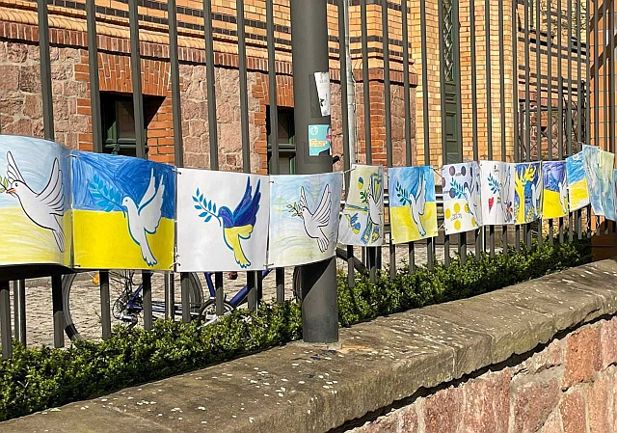Language, Violence, and Peacemaking in Ukraine
- Location
- Room 121 Muirhead Tower Edgbaston Campus University of Birmingham
- Dates
- Thursday 20 October 2022 (15:00-16:30)

The war in Ukraine is not about language politics. When, where, or whether at all one can or should speak Russian, mixed dialects, or minority languages has long been a topic of debate in Ukraine, but language choice was not a direct cause of the eight-year armed conflict in the country's south and east, nor does it justify the 2022 Russian invasion.
But language more broadly conceived has played a substantial role in the war. This presentation asks: how can we study (the multitude of) relationships between language and violence ethnographically? And what about the flip-side: what role is language through to play in peacemaking, and reconciliation? This talk investigates some of the language ideologies that undergird common assumptions about the sorts of speech – for example, dehumanizing slurs, imperialist historical narratives, disinformation, lack of a "common language" – presumed capable of wounding people, creating division, or even provoking armed conflict, observing that what is most audibly troubling is not necessarily that which is most powerful. I then compare and contrast language's presumed role in bringing about violence with assumptions about its importance in peacemaking and reconciliation efforts.
Speaker:
-
Deborah A. Jones is a linguistic and sociocultural anthropologist focused on Ukraine. Her most recent fieldwork was with people working in landmine clearance in then Kyiv-controlled Donbas. She is also engaged in refugee support in Germany, where she is a researcher at the Max Planck Institute for Social Anthropology.
Chair and Convenor:
ALL WELCOME!